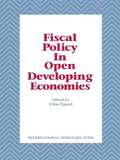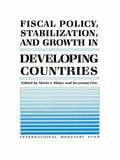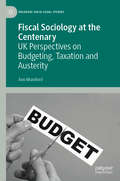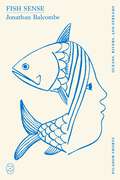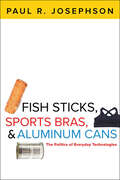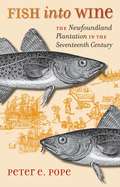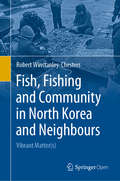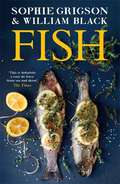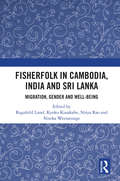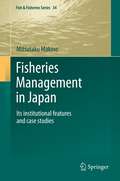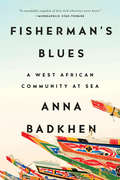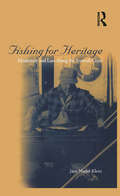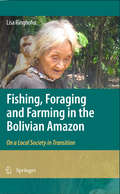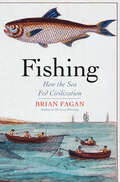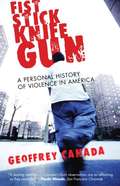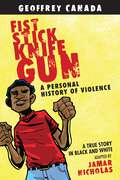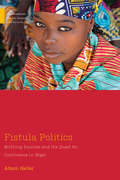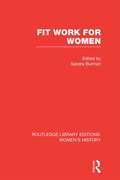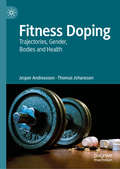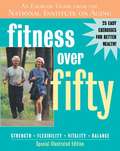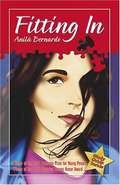- Table View
- List View
Fiscal Policy In Open Developing Economies
by Vito TanziA report from the International Monetary Fund.
Fiscal Policy, Stabilization, and Growth in Developing Countries
by Mario I. BlejerA report from the International Monetary Fund.
Fiscal Reforms in Low-Income Countries: Experience Under IMF-supported Programs
by George T. AbedIMF-supported Programs
Fiscal Sociology at the Centenary: UK Perspectives on Budgeting, Taxation and Austerity (Palgrave Socio-Legal Studies)
by Ann MumfordThis book discusses the socio-legal tax state and its relationship to development, inequality and the transnational. 'Fiscal Sociology' commenced in 1918 when Joseph A. Schumpeter examined the links between capitalism and taxation, arguing that fiscal pressures on governments led directly to the development of tax collection, and the burgeoning growth of capitalist economies. The identification of taxation as an important component of capitalism has continued to change the way that theoretical sociologists conceptualise tax. This book documents the history of this literature to provide a summary of the topic for scholars seeking a bridge between taxation law and contextual, historical, and anthropological analyses of the development of the state, more generally. Whilst Schumpeter’s insights have been celebrated over the past one hundred years, taxation has slipped from the agenda of many scholarly disciplines, in relation to analyses of poverty, globalisation, and equality. Fiscal Sociology at the Centenary fills this gap. The implications of this literature for taxation law in the United Kingdom, in particular, are considered.
Fiscal Sustainability in Remittance-Dependent Economies
by Ralph Chami Amine Mati Yasser Abdih Michael GapenA report from the International Monetary Fund.
Fish Sense (Picador Shorts)
by Jonathan BalcombeA quirky, intimate, and eye-opening look into the ways of thinking like a fish.An extract from the much-loved modern classic on the subject of fish consciousness, What a Fish Knows.Do fishes think? Do they really have three-second memories? And can they recognize the humans who peer back at them from above the surface of the water? Jonathan Balcombe dives in among our marine cousins to explore the essential questions of how fish perceive and process the world.With his ethologist’s gift for showing us the hidden depths of questions we’ve routinely preferred to think of as simple, and his raconteur’s flair for the surprising and the curious, Balcombe takes us under the sea, through streams and estuaries, and to the other side of the aquarium glass to reveal the surprising capabilities of fishes. Balcombe upends our assumptions about fishes, portraying them not as unfeeling, dead-eyed feeding machines but as sentient, aware, social, and even Machiavellian―in other words, much like us.Using humor and a repertoire of some of the most surprising fish facts you’ve ever heard, Balcombe shakes up what you think you know about what’s going on inside the mind of these denizens of the deep.Fish Sense is part of the Picador Shorts series “Oceans, Rivers, and Streams” in which excerpts from beloved classics speak to our relationship with our water bodies, great and small.
Fish Sticks, Sports Bras, and Aluminum Cans: The Politics of Everyday Technologies
by Paul R. JosephsonWhat do bananas, rocket ships, bicycles, and French fries have in common?Who would have guessed that the first sports bra was made out of two jockstraps sewn together or that it succeeded because of federal anti-discrimination laws? What do simple decisions about where to build a road or whether to buy into the carbon economy have to do with Hurricane Katrina or the Fukushima nuclear disaster? How did massive flood control projects on the Mississippi River and New Deal dams on the Columbia River lead to the ubiquity of high fructose corn syrup? And what explains the creation—and continued popularity—of the humble fish stick? In Fish Sticks, Sports Bras, and Aluminum Cans, historian Paul R. Josephson explores the surprising origins, political contexts, and social meanings of ordinary objects. Drawing on archival materials, technical journals, interviews, and field research, this engaging collection of essays reveals the forces that shape (and are shaped by) everyday objects. Ultimately, Josephson suggests that the most familiar and comfortable objects—sugar and aluminum, for example, which are inextricably tied together by their linked history of slavery and colonialism—may have the more astounding and troubling origins. Students of consumer studies and the history of technology, as well as scholars and general readers, will be captivated by Josephson’s insights into the complex relationship between society and technology.
Fish into Wine
by Peter E. PopeCombining innovative archaeological analysis with historical research, Peter E. Pope examines the way of life that developed in seventeenth-century Newfoundland, where settlement was sustained by seasonal migration to North America's oldest industry, the cod fishery. The unregulated English settlements that grew up around the exchange of fish for wine served the fishery by catering to nascent consumer demand. The English Shore became a hub of transatlantic trade, linking Newfoundland with the Chesapeake, New and old England, southern Europe, and the Atlantic islands. Pope gives special attention to Ferryland, the proprietary colony founded by Sir George Calvert, Lord Baltimore, in 1621, but later taken over by the London merchant Sir David Kirke and his remarkable family. The saga of the Kirkes provides a narrative line connecting social and economic developments on the English Shore with metropolitan merchants, proprietary rivalries, and international competition.Employing a rich variety of evidence to place the fisheries in the context of transatlantic commerce, Pope makes Newfoundland a fresh point of view for understanding the demographic, economic, and cultural history of the expanding North Atlantic world.
Fish, Fishing and Community in North Korea and Neighbours: Vibrant Matter(s)
by Robert Winstanley-ChestersThis open access book explores the histories and geographies of fishing in North Korea and the surrounding nations. With the ideological and environmental history of North Korea in mind, the book examines the complex interactions between local communities, fish themselves, wider ecosystems and the politics of Pyongyang through the lens of critical geography, fisheries statistics and management science as well as North Korean and more generally Korean and East Asian studies. There is increasing global interest in North Korea, its politics, people and landscapes, and as such, this book describes encounters with North Korean fishing communities, as well as unusual moments in the field in the People’s Republic of China, the Russian Federation and the Republic of Korea (South Korea). It addresses fish, fishing infrastructure, fishing science and fishing statistics and other non-human elements of North Korean and other nations’ developmental regimes as actors and participants within them as much as humans and their technologies. The book enables readers to gain extensive insights into the aspirations and practices of fishing in North Korea and its neighbours, the navigation of difficult political and developmental situations and changing ecological realities in a time of environmental and climate crisis familiar to many across the globe.
Fish: A Memoir of a Boy in a Man's Prison
by T. J. ParsellWhen seventeen-year-old T. J. Parsell held up the local Photo Mat with a toy gun, he was sentenced to four and a half to fifteen years in prison. The first night of his term, four older inmates drugged Parsell and took turns raping him. When they were through, they flipped a coin to decide who would own him. Forced to remain silent about his rape by a convict code among inmates (one in which informers are murdered), Parsell's experience that first night haunted him throughout the rest of his sentence. In an effort to silence the guilt and pain of its victims, the issue of prisoner rape is a story that has not been told. For the first time Parsell, one of America's leading spokespeople for prison reform, shares the story of his coming of age behind bars. He gives voice to countless others who have been exposed to an incarceration system that turns a blind eye to the abuse of the prisoners in its charge. Since life behind bars is so often exploited by television and movie re-enactments, the real story has yet to be told. Fish is the first breakout story to do that.
Fisherfolk in Cambodia, India and Sri Lanka: Migration, Gender and Well-being
by Kyoko Kusakabe Nitya Rao Ragnhild Lund Nireka WeeratungeThis volume studies the coastal and riparian fishing communities of three Asian countries – Cambodia, India and Sri Lanka. It explores issues of migration and movement, gender relations, wellbeing, and nature-society relations common among these communities, and studies the impacts of internal and external pressures such as changing state policies, increased market exposure and unstable environmental situations. It also discusses the changes needed to ensure safe migration, social inclusion and the gendered well-being of fishers in these countries, and identifies the roles that social networks and collective action play in bringing about these improvements. Fisherfolk in Cambodia, India and Sri Lanka presents a rigorously investigated account of the peoples and production systems of some of Asia’s most populated and contested but dynamic and productive coasts and floodplains. The book will be of importance to students and researchers of Asian studies, development studies, geography, sociology, migration studies, gender studies, and minority studies.
Fisheries Management in Japan
by Mitsutaku MakinoJapan is one of the world's largest fish-eating countries with a long history, and has developed its own customs and values in terms of managing fisheries resources. The first half of this book introduces the history and institutional features of capture fisheries management in Japan, with 9 case studies from sub-arctic to tropical ecosystems, from sedentary to migratory species, and from small-scale coastal to offshore industrial fisheries. For example, coastal fisheries management is more community-based, and local people have the authority and take priority in the decision-making process. In contrast, offshore fisheries are more industrialized and commercially oriented, and the national government plays a major role in their management. One of the main challenges in world fisheries is to implement the ecosystem approach, but there is no one-size-fits-all solution for its implementation. The second half of this book considers the advantages and limitations of the Japanese fisheries management regime and discusses the necessary environmental policy measures to bridge the gaps between fisheries management and ecosystem-based management. As a case study, management measures in the Shiretoko World Natural Heritage area are analyzed. In closing, the Grand Plan of Japanese fisheries policy for the next 20 years and three future scenarios are presented.
Fisherman's Blues: A West African Community at Sea
by Anna BadkhenAn intimate account of life in a West African fishing village, tugged by currents ancient and modern, and dependent on an ocean that is being radically transformed.The sea is broken, fishermen say. The sea is empty. The genii have taken the fish elsewhere.For centuries, fishermen have launched their pirogues from the Senegalese port of Joal, where the fish used to be so plentiful a man could dip his hand into the grey-green ocean and pull one out as big as his thigh. But in an Atlantic decimated by overfishing and climate change, the fish are harder and harder to find. Here, Badkhen discovers, all boundaries are permeable--between land and sea, between myth and truth, even between storyteller and story. Fisherman's Blues immerses us in a community navigating a time of unprecedented environmental, economic, and cultural upheaval with resilience, ingenuity, and wonder.
Fishing for Heritage: Modernity and Loss along the Scottish Coast
by Jane Nadel-KleinCastles, lochs, seascapes. Coastal Scotland is one of the world's most romanticized tourist destinations, yet it is in the midst of severe economic decline. The North Atlantic fisheries crisis has hit Scottish communities hard and local fisherfolk are faced with chronic insecurity, anxiety over the decline of fishing and doubts about their cultural survival. The decline of this traditional industry has been accompanied by growing tourism along Scottish shores. Fishing villages are marketed for tourist consumption and culture has become a commodity. Drawing upon fieldwork, novels, folk music and travel literature, Nadel-Klein explores how these influences have affected locals' sense of identity and presence within a modern European nation. How is identity linked to power? What role do memory and authenticity play in the creation of Scottish heritage? How do locals feel about the onslaught of tourists? The topical nature of these issues and their relevance to other regions facing similar tensions make this book an important contribution to contemporary anthropology.
Fishing in Contested Waters
by Sarah KingAfter the Supreme Court of Canada's 1999 Marshall decision recognized Mi'kmaw fishers' treaty right to fish, the fishers entered the inshore lobster fishery across Atlantic Canada. At Burnt Church/Esgenoôpetitj, New Brunswick, the Mi'kmaw fishery provoked violent confrontations with neighbours and the Canadian government. Over the next two years, boats, cottages, and a sacred grove were burned, people were shot at and beaten, boats rammed and sunk, roads barricaded, and the local wharf occupied.Based on 12 months of ethnographic field work in Burnt Church/Esgenoôpetitj, Fishing in Contested Waters explores the origins of this dispute and the beliefs and experiences that motivated the locals involved in it. Weaving the perspectives of Native and non-Native people together, Sarah J. King examines the community as a contested place, simultaneously Mi'kmaw and Canadian. Drawing on philosophy and indigenous, environmental, and religious studies, Fishing in Contested Waters demonstrates the deep roots of contemporary conflicts over rights, sovereignty, conservation, and identity.
Fishing, Foraging and Farming in the Bolivian Amazon
by Lisa RinghoferEmpirical in character, this book analyses the society-nature interaction of the Tsimane', a rural indigenous community in the Bolivian Amazon. Following a common methodological framework, the material and energy flow (MEFA) approach, it gives a detailed account of the biophysical exchange relations the community entertains with its natural environment: the socio-economic use of energy, materials, land and time. Equally so, the book provides a deeper insight into the local base of sociometabolic transition processes and their inherent dynamics of change. The local community described in this publication stands for the many thousands of rural systems in developing countries that, in light of an ever more globalising world, are currently steering a similar - but maybe differently-paced - development course. This book presents insightful methodological and conceptual advances in the field of sustainability science and provides a vital reader for students and researchers of human ecology, ecological anthropology, and environmental sociology. It equally contributes to improving professional development work methods.
Fishing: How the Sea Fed Civilization
by Brian FaganAn archaeologist examines humanity&’s last major source of food from the wild, and how it enabled and shaped the growth of civilization.In this history of fishing—not as sport but as sustenance—archaeologist and best-selling author Brian Fagan argues that fishing was an indispensable and often overlooked element in the growth of civilization. It sustainably provided enough food to allow cities, nations, and empires to grow, but it did so with a different emphasis. Where agriculture encouraged stability, fishing demanded movement. It frequently required a search for new and better fishing grounds; its technologies, centered on boats, facilitated movement and discovery; and fish themselves, when dried and salted, were the ideal food—lightweight, nutritious, and long-lasting—for traders, travelers, and conquering armies. This history of the long interaction of humans and seafood tours archaeological sites worldwide to show readers how fishing fed human settlement, rising social complexity, the development of cities, and ultimately the modern world.&“A tour-de-force . . . Achieves its goal of putting fishing on par with hunter-gathering and agriculture in the history of human civilization.&” —Leon Vlieger, Natural History Book Service &“A valuable book as well as an interesting one . . . Fagan succeeds in providing an admirable primer for the enthusiast and a welcome tool for the historian.&” —Economist&“A unique panoramic survey of the field.&” —Laurence A. Marschall, Natural History&“Gently scholarly, elegant . . . A compelling picture of how fishing was so integral in each society&’s development. A multilayered, nuanced tour of &“fishing societies throughout the world&” and across millennia.&” —Kirkus Reviews
Fist Stick Knife Gun
by Geoffrey CanadaCanada (president of the Rheedlen Centers for Children and Families in New York City) offers a gripping memoir of his own youth and adulthood, as well as a description of his vision for a better future for children growing up in a frightening world of poverty, automatic weapons, and the continual threat of violence. Annotation c. by Book News, Inc., Portland, Or.
Fist Stick Knife Gun: A Personal History of Violence
by Geoffrey CanadaLong before U.S. News and World Report named him one of America's Best Leaders and Oprah Winfrey called him "an angel from God," Geoffrey Canada was a small, vulnerable, scared boy growing up in the South Bronx. Canada's world was one where "sidewalk" boys learned the codes of the block and were ranked through the rituals of fist, stick, and knife. Then the streets changed, and the stakes got even higher. In this candid and riveting memoir, Canada relives a childhood in which violence stalked every street corner. "If you wonder how a fourteen-year-old can shoot another child his own age in the head and then go home to dinner," Canada writes, "you need to know you don't get there in a day, or week, or month. It takes years of preparation to be willing to commit murder, to be willing to kill or die for a corner, a color, or a leather jacket."
Fistula Politics: Birthing Injuries and the Quest for Continence in Niger (Medical Anthropology)
by Alison HellerObstetric fistula is a birthing injury caused by prolonged obstructed labor that results in urinary and fecal incontinence. It is nearly non-existent in the Global North. In contrast Niger, in West Africa, has one of the highest rates of fistula in the world. In Western humanitarian and media narratives, fistula is presented as deeply stigmatizing, resulting in divorce, abandonment by kin, exile from communities, depression and suicide. In Fistula Politics, Alison Heller illustrates the inaccuracy of these popular narratives and shows how they serve the interests not of the women so affected, but of humanitarian organizations, the media, and local clinics.
Fit Work for Women: Women's History: Fit Work For Women (Routledge Library Editions: Women's History)
by Sandra BurmanThis book presents a collection of papers which discuss the origins of the domestic ideal and its effects on activities usually undertaken by women: not only on women’s wage work, but also on activities either not defined as work or accorded an ambiguous status. It discusses the formation of the ideology of domesticity, philanthropy and its effects on official policy and on women, landladies in the nineteenth and twentieth centuries, working-class radical suffragists, and Labour Party and trade union attitudes to feminists. Modern society of 1979, when the book was first published, is analysed in a discussion of militancy and acquiescence among women wage workers, a look at how and why the legal system reinforces activity specialisation according to gender, and an examination of why both pre-pre-war capitalism and the modern Welfare State have been unable to meet the needs of dependents. This collection reflects the increasing recognition that in order to understand women’s roles today, it is necessary to examine not only their current manifestations, but also their origins and early development.
Fit für die digitale Arbeitswelt: Erfolgreich in die berufliche Zukunft mit dem Kompetenz-MUSKEL-Modell
by Martin-Niels DäflerSpätestens seit Corona definieren wir „arbeiten“ anders als früher: Homeoffice statt Einzelbüro. Zoom-Meeting statt. Teambesprechung in der Firma. Ständig neue Projekte statt 08/15-Jobs. Sich selbstständig seine Aufgaben suchen, statt unmissverständliche Order vom Chef/von der Chefin erhalten. Vormittags sich mit der besten Freundin zum Frühstück treffen, dafür bis spät abends am Laptop sitzen. Willkommen in der neuen Arbeitswelt!Das Virus hat die Veränderung von Gesellschaft und Wirtschaft zwar beschleunigt. Doch schon längst davor haben. Digitalisierung und Globalisierung dafür gesorgt, dass die Art und Weise, wie wir zusammenarbeiten und -leben anderen Regeln gehorcht als vor zehn oder gar 20 Jahren. Und: Diese Entwicklung wird sich weiter fortsetzen, gar beschleunigen.Algorithmen und Roboter sind uns schon längst bei jedweden Routinetätigen überlegen und werden ihren Abstand noch vergrößern. So bleiben uns Menschen auf Sicht gesehen folglich jene Tätigkeiten, bei denen Kompetenzen gefragt sind, die uns Computer und Maschinen auf absehbare Zeit nicht streitig machen werden: Kreativität, Empathie und intuitiv-analytisches Denken. Dabei ist auch klar – nicht als Einzelkämpfer werden wir diese Kompetenzen benötigen, sondern als Teil von (agilen) Teams, die sich immer wieder neu zusammensetzen. So erlangen Kommunikations- und Konfliktlösungsfähigkeiten eine noch höhere Bedeutung, als sie sie ohnedies schon besitzen.Dieser Ratgeber verrät Ihnen, welche Eigenschaften und Fertigkeiten in der Arbeitswelt 4.0 gefragt sind und wie man die erforderlichen Kompetenzen im Berufsalltag erlangen kann. Praxistaugliche, direktanwendbare Methoden, Werkzeuge und Tipps zeigen Ihnen den erfolgreichen Weg in die neue Arbeitswelt.
Fitness Doping: Trajectories, Gender, Bodies and Health
by Thomas Johansson Jesper AndreassonThis book compiles several years of multi-faceted qualitative research on fitness doping to provide a fresh insight into how the growing phenomenon intersects with issues of gender, body and health in contemporary society. Drawing on biographical interviews, as well as online and offline ethnography, Andreasson and Johansson analyse how, in the context of the global development of gym and fitness culture, particular doping trajectories are formulated, and users come into contact with doping. They also explore users’ internalisation of particular values, practices and communications and analyse how this influences understandings of the self, health, gender and the body, as well as tying this into wider beliefs regarding individual freedom and the law. This insight into doping goes beyond elite and organised sports, and will be of interest to students and scholars across the sociology of sport, leisure studies, and gender and body politics.
Fitness Over Fifty
by National Institute on AgingStudies show that people who stay active-no matter what their age-benefit from exercise. Not only can it help you feel better, but it makes doing all those day to day tasks easier and more enjoyable. So start exercising today, with Fitness Over Fifty, the National Institute on Aging's guide to exercise for men and women over fifty. You don't need to join a gym or buy expensive equipment. Everything you need to begin your own exercise program is right inside this book. Energy, strength, balance, and flexibility are the ingredients that add up to long' lasting vitality and health. And Fitness Over Fifty features practical advice about how you can reach those goals. With nutrition tips, easy-to follow exercises, and expert advice, Fitness Over Fifty is the last exercise guide you'll need! Fitness Over Fifty includes: Exercise safety tips Ways to get-and stay- motivated Endurance, flexibility, strength & balance exercises Tips on nutrition and healthy eating Daily, weekly, and monthly exercise and nutrition records, and more! The National Institute On Aging, part of the National Institutes of Health, conducts research aimed at improving the health of older people. For this book, the NIA brought together nine of the nation's best' informed experts on the topic of exercise for older adults and consulted many more in different specialties. Together they lead a broad scientific effort to understand the nature of aging and to extend the healthy, active years of life.
Fitting In
by Anilú BernardoAnilu Bernardo's spunky Cuban-American protagonists navigate the uncertain waters of adolescence in Miami, and their lot is all that much harder as they juggle the traditional burdens of middle school and high school coupled with the stresses of living those burdens in a foreign culture. This edition includes a study guide.
